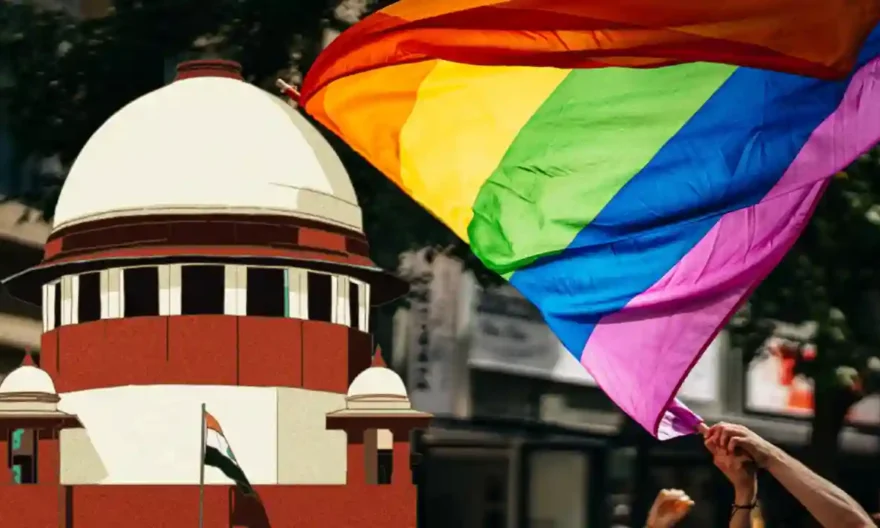
Supreme Court constitution Bench today on Thursday reserved Judgement on Same Sex Marriage Legal Recognition. DY Chandrachud stated that the arguments of almost all the parties and their responses have been heard and now the verdict is being reserved in this matter.
Solicitor General of India Tushar Mehta and lawyers of the state governments presented their arguments and urged the bench that the issue of same-sex marriage is not only a matter for the court but for the Parliament. The bench rejected all these arguments and started hearing on the same-sex marriage petitions on April 18.
Therefore, the bench comprising of Chief Justice of India DY Chandrachud, Justice Sanjay Kishan Kaul, Justice S Ravindra Bhat, Justice Hima Kohli, and Justice PS Narasimha will begin hearing the case on April 18.
There were 20 petitions before the bench, filed by various same-sex couples including transgender persons and LGBTQIA+ activists that have challenged the provisions of the Special Marriage Act 1954, the Hindu Marriage Act 1955 and the Foreign Marriage Act 1969.
During the hearing, the bench stated that it would regulate the issue to the Special Marriage Act only and would not impede the personal laws.
Another important development in the case includes the willingness expressed by the central government which opposed the petitions on the grounds that it was a matter for Parliament to decide whether same-sex couples rights confer.
Furthermore, in this response, the court observed whether some executive directives could be issued to ensure that same-sex couples have access to welfare measures and social security such as opening joint bank accounts, life insurance policy, PF, pension etc. for nominating their partner.
Also, the bench considered whether a declaration of right to marriage for same-sex couples could be issued without interfering with existing laws.
The petitioners argued that “husband” & “wife” in the Special Marriage Act should be read as “husband” or “person” in a gender-neutral manner. The central government opposed it by saying that the Special Marriage Act was framed with an entirely different objective in mind when it was passed in 1954.
The legislature never considered bringing same-sex couples under its extent.
The Center also stated that such an interpretation would affect various other laws relating to adoption, maintenance, surrogacy, inheritance, divorce etc.
The National Commission for Protection of Child Rights expressed its concern about allowing same-sex couples to adopt. On the other hand, the Delhi Commission for Protection of Child Rights supported the petitions and upheld the right of same-sex couples for adoption.




